The 50-year battle for Western Sahara
UK is latest country to back Moroccan plan to end decades-long dispute with Algerian-backed Polisario Front
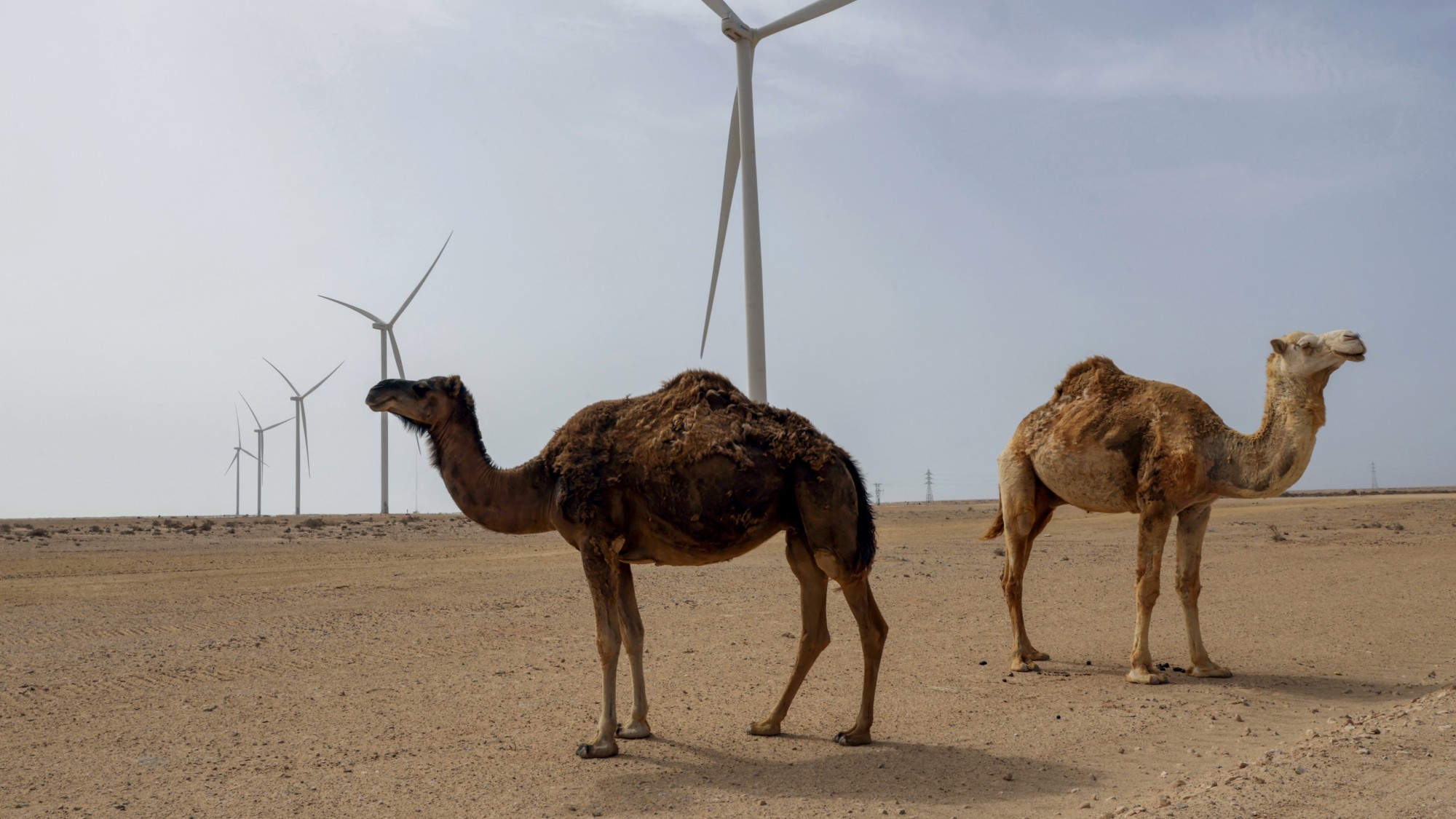
A free daily email with the biggest news stories of the day – and the best features from TheWeek.com
You are now subscribed
Your newsletter sign-up was successful
Britain has become the latest country to back a plan to give limited autonomy to the disputed territory of Western Sahara, while keeping it under Moroccan control.
Foreign Secretary David Lammy said the plan, proposed by Morocco, was "the most credible, viable and pragmatic" way to resolve one of Africa's longest-running and most frustrating regional conflicts.
Who controls Western Sahara?
The dispute over Western Sahara – roughly 100,000 square miles of sparsely populated land to the south of Morocco and Algeria, and to the west of Mauritania – has become an "intricate" and "multifaceted political, diplomatic, and military contest", said Modern Diplomacy.
The Week
Escape your echo chamber. Get the facts behind the news, plus analysis from multiple perspectives.

Sign up for The Week's Free Newsletters
From our morning news briefing to a weekly Good News Newsletter, get the best of The Week delivered directly to your inbox.
From our morning news briefing to a weekly Good News Newsletter, get the best of The Week delivered directly to your inbox.
It's an area "rich in Moroccan culture, Hassani heritage and natural resources", and, following the withdrawal of Spain's colonial forces in 1975, both Morocco and the Algeria-supported, pro-independence Polisario Front claimed it as theirs. Years of low-level fighting ensued until, in 1991, a UN-supervised ceasefire was agreed that left roughly three-quarters of the territory under Moroccan control. The remaining strip is controlled by Polisario, which has declared a "Sahrawi Arab Democratic Republic".
For the past 30 years, the UN has been maintaining a peacekeeping mission in the Western Sahara to "monitor the humanitarian and security situation" and ensure compliance with the ceasefire agreement. But "the Polisario Front has not yet adhered to the decisions and recommendations of the UN mission".
What is the Moroccan plan?
In 2007, Morocco submitted its Autonomy Initiative to the UN, proposing that Western Sahara manage its own internal affairs, while Morocco retains control over defence, foreign policy and currency. Though the initiative was warmly received by several African, Arab and European countries, it failed to get formal backing.
Then in 2020, during Donald Trump's first presidential term, the US shifted position and recognised Moroccan sovereignty, in a quid pro quo for Morocco joining the Abraham Accords and normalising relations with Israel. Following the US lead, France declared backing for Morocco's plan last year, ending its "long-standing position of neutrality", said Bloomberg. Spain, Germany, as well as many Gulf States and Egypt have also backed the plan.
A free daily email with the biggest news stories of the day – and the best features from TheWeek.com
Since US recognition of its sovereignty, Morocco has invested heavily in the region, sparking something of a development blitz. After years of conflict and diplomatic stalemate, the area is emerging "as a hotspot for investment, drawing European and American firms interested in fishing, agriculture and infrastructure projects", said The Independent.
"The Western Sahara has gone from a disputed territory that was radioactive to foreign investors to an increasingly normal region that's receiving a growing flow of capital," Riccardo Fabiani, project director for North Africa at the International Crisis Group, told Bloomberg.
Is there an alternative?
Growing international support for Morocco's plan has left Algeria and the Polisario Front "fuming". The group – which some US lawmakers want listed as a terrorist organisation – has vowed to step up resistance and has claimed recent attacks against Moroccan forces near the Algerian border.
Polisario has also "taken its fight to international courts", said The Independent. It argues that Morocco "does not have the right to trade resources belonging to the Sahrawi people, while the conflict remains unresolved".
But alternative solutions seem unlikely. Last year, according to Reuters, the UN envoy for Western Sahara floated the idea of partitioning the territory to "allow for the creation, on the one hand, of an independent state in the southern part and, on the other hand, the integration of the rest of the territory as part of Morocco". Both Morocco and the Polisario Front rejected the proposal out of hand.
-
 Political cartoons for February 15
Political cartoons for February 15Cartoons Sunday's political cartoons include political ventriloquism, Europe in the middle, and more
-
 The broken water companies failing England and Wales
The broken water companies failing England and WalesExplainer With rising bills, deteriorating river health and a lack of investment, regulators face an uphill battle to stabilise the industry
-
 A thrilling foodie city in northern Japan
A thrilling foodie city in northern JapanThe Week Recommends The food scene here is ‘unspoilt’ and ‘fun’
-
 ‘The West needs people’
‘The West needs people’Instant Opinion Opinion, comment and editorials of the day
-
 Le Pen back in the dock: the trial that’s shaking France
Le Pen back in the dock: the trial that’s shaking FranceIn the Spotlight Appealing her four-year conviction for embezzlement, the Rassemblement National leader faces an uncertain political future, whatever the result
-
 Biggest political break-ups and make-ups of 2025
Biggest political break-ups and make-ups of 2025The Explainer From Trump and Musk to the UK and the EU, Christmas wouldn’t be Christmas without a round-up of the year’s relationship drama
-
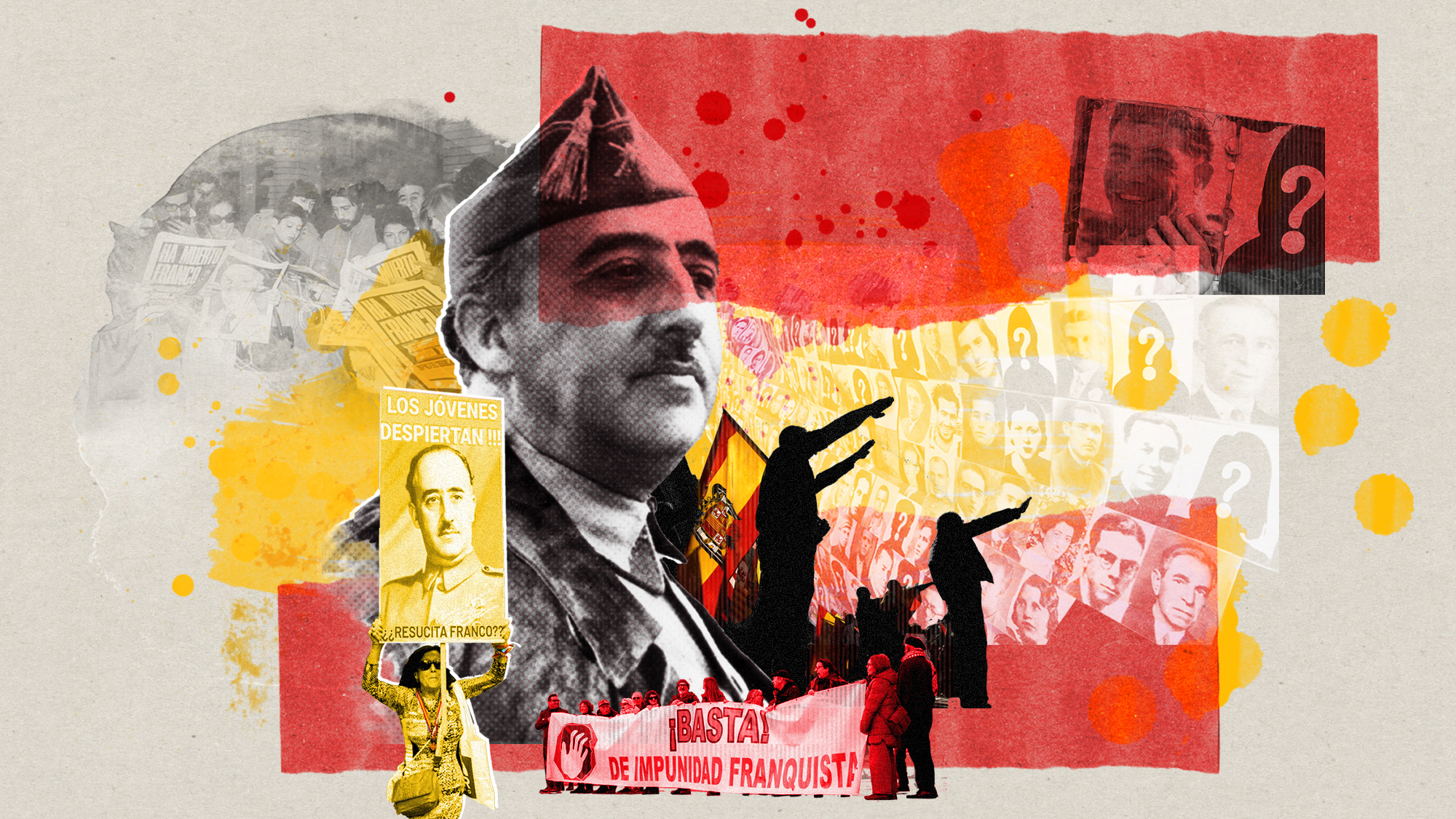 Revisionism and division: Franco’s legacy five decades on
Revisionism and division: Franco’s legacy five decades onIn The Spotlight Events to mark 50 years since Franco’s death designed to break young people’s growing fascination with the Spanish dictator
-
 France targets Shein over weapons, sex dolls
France targets Shein over weapons, sex dollsSpeed Read Shein was given 48 hours to scrub the items from their website
-
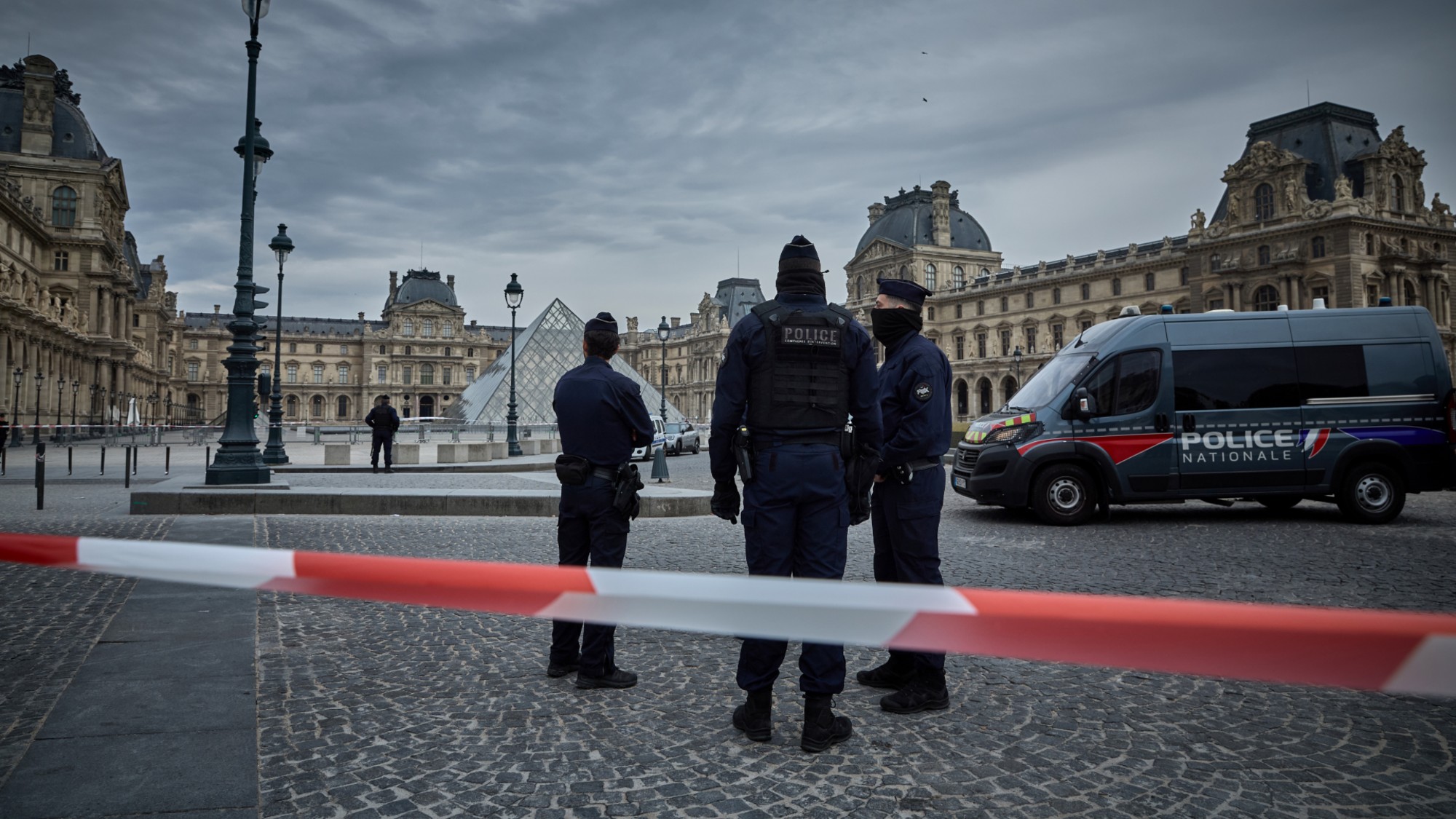 ‘France may well be in store for a less than rocambolesque future’
‘France may well be in store for a less than rocambolesque future’Instant Opinion Opinion, comment and editorials of the day
-
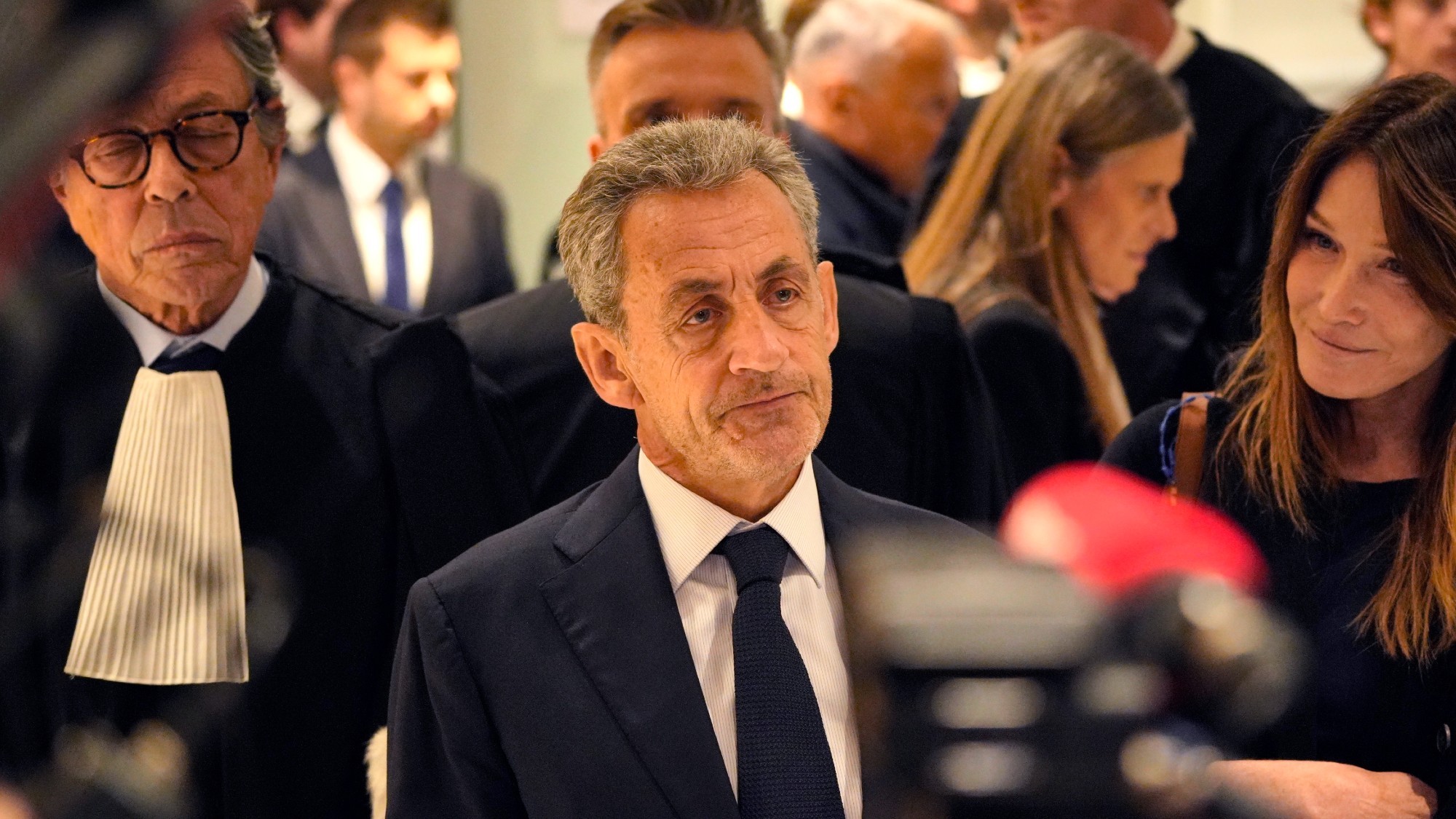 Sarkozy behind bars: the conviction dividing France
Sarkozy behind bars: the conviction dividing FranceIn the Spotlight The former president of the republic has portrayed judicial investigation of his ties to Gaddafi regime as a left-wing witch-hunt
-
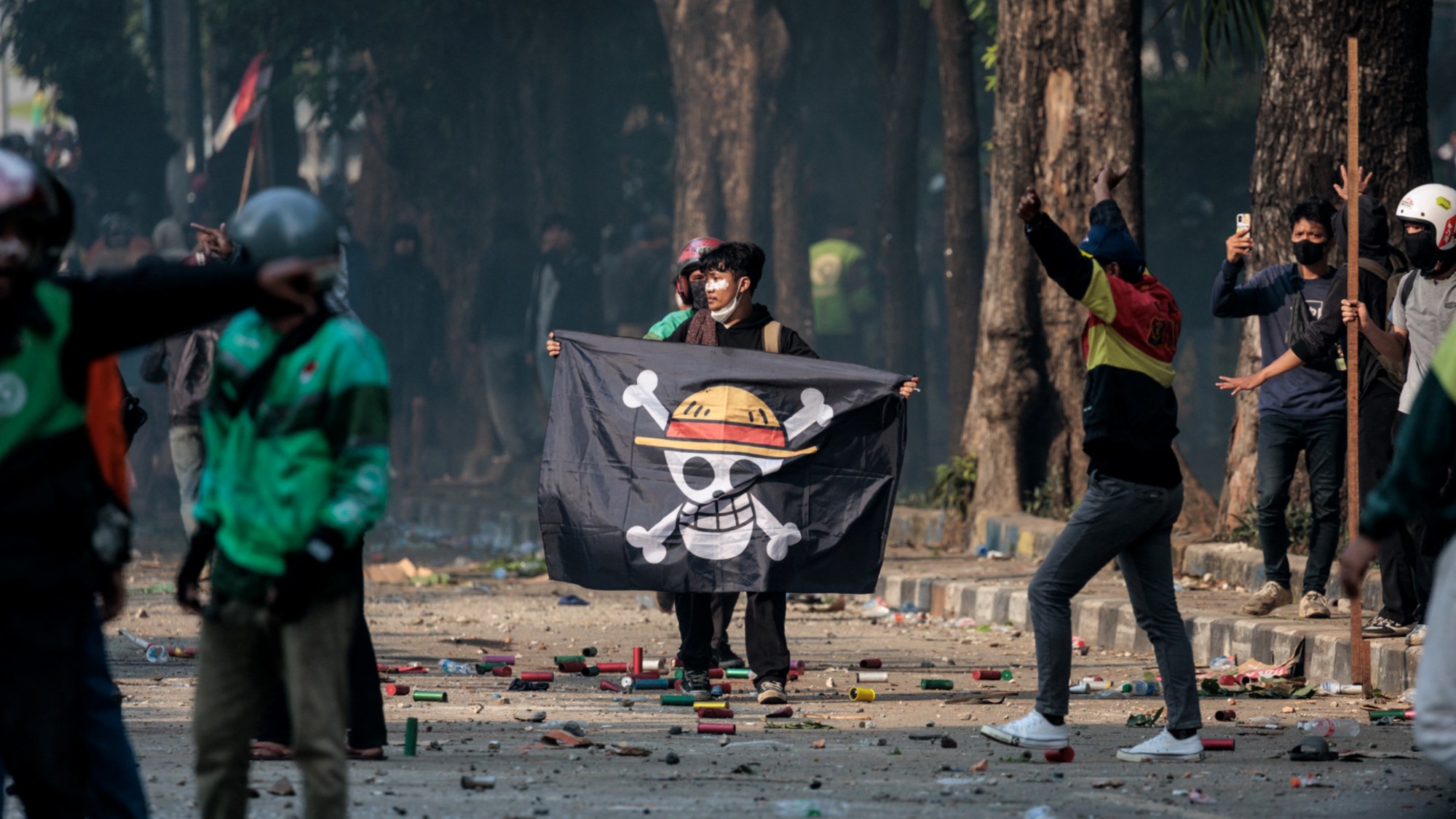 How the One Piece manga flag became a Gen Z resistance symbol
How the One Piece manga flag became a Gen Z resistance symbolThe Explainer Straw-hat skull seen at protests in Indonesia, Nepal and France shows how young people are ‘reshaping the vocabulary of dissent’